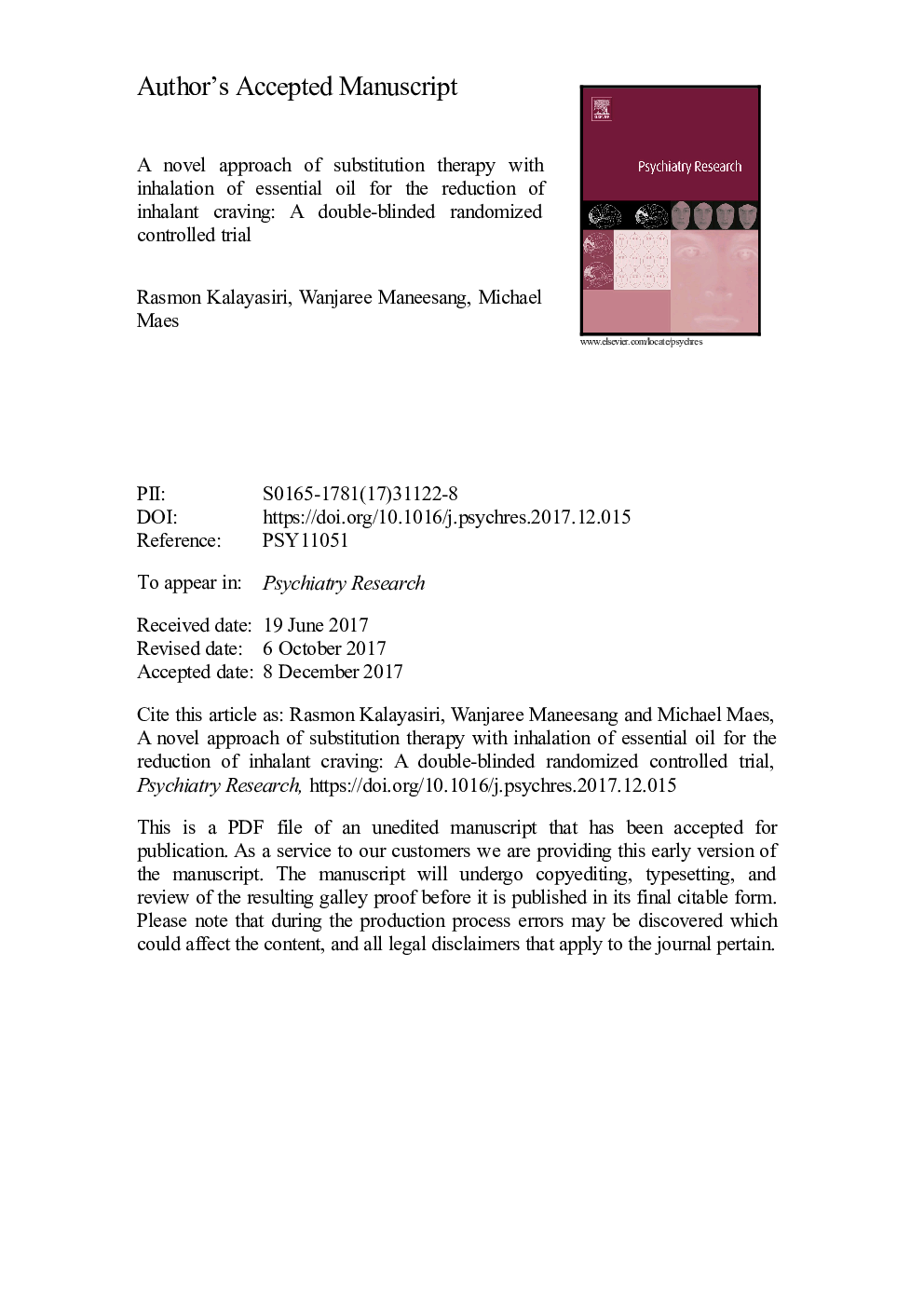| Article ID | Journal | Published Year | Pages | File Type |
|---|---|---|---|---|
| 6811671 | Psychiatry Research | 2018 | 25 Pages |
Abstract
Inhalants, which are neurotoxic central nervous system (CNS) suppressants, are frequently abused by young adults. Unlike other CNS depressants, including alcohol and opiates, no treatment is currently approved for inhalant dependence. In this report, a novel approach of substitution treatment for inhalant addiction was explored in a double-blinded, randomized, controlled crossover design to examine the effects of inhalation of essential oil and perfume on the reduction of cue-induced craving for inhalant in thirty-four Thai males with inhalant dependence. The craving response was measured by the modified version of Penn Alcohol Craving Score for Inhalants (PACS-inhalants). The participants (mean age ± SE = 27.9 ± 1.4) in this trial had used inhalant for 5.8 ± 1.1 years. Cravings could be induced in all participants by visual cues as assessed by ^50% increases in inhalant craving levels. Generalized estimating equations showed a significant suppressant effect of essential oil, but not perfume, on the craving response as compared with baseline cue-induced craving. Moreover, essential oil, but not perfume, had significant effects on physiological responses including decreasing pulse rate. It is concluded that inhaling essential oil as a substitution treatment for inhalant may be used as part of treatment programs for reducing inhalant craving.
Related Topics
Life Sciences
Neuroscience
Biological Psychiatry
Authors
Rasmon Kalayasiri, Wanjaree Maneesang, Michael Maes,
